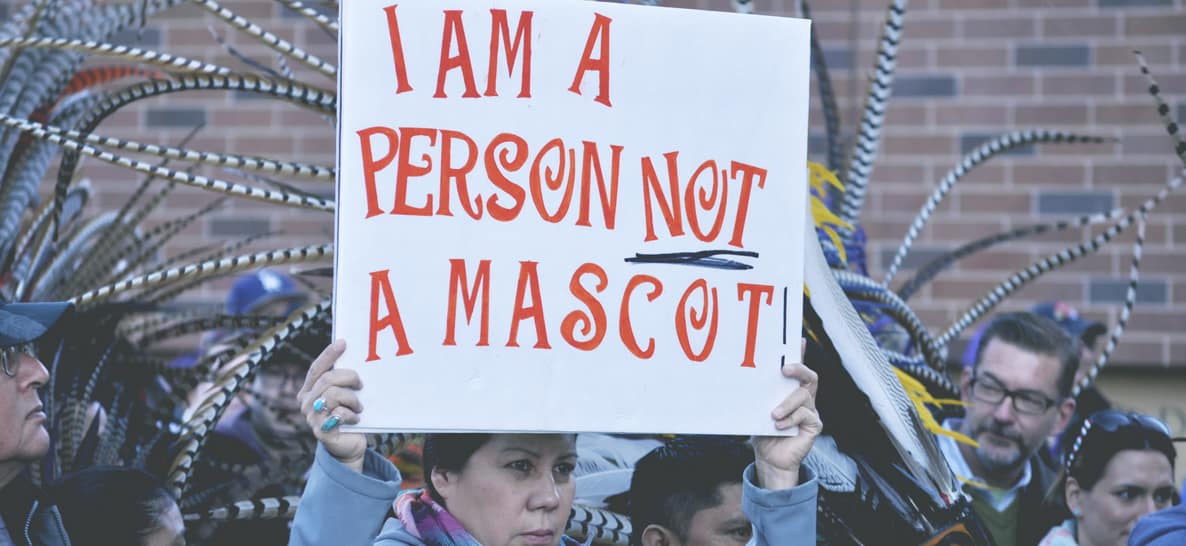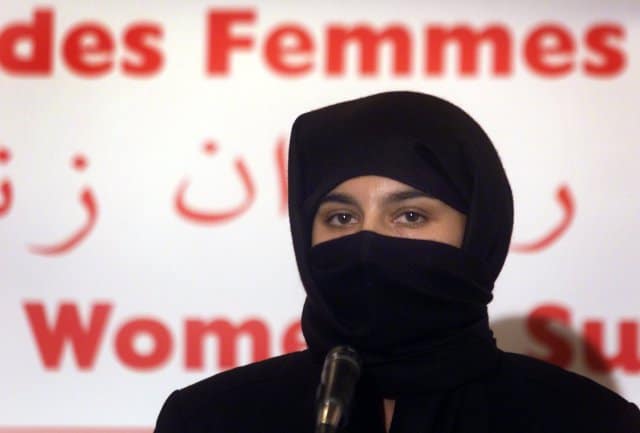
When [Europeans] first came to our country, a bounty was offered on Indians, and the dead were brought in by the wagonload. But that got to be a problem, so they started asking for just the scalps of Indians. Just like the hide of a deer is called a ‘deerskin,’ and the hide of a beaver is called a ‘beaverskin,’ the scalp of an Indian was called a ‘redskin.’
– Chief Billy Redwing Tayac of the Piscataway Indian Nation, 1998 for Sojourners Magazine
I was 9 years old when “The Skins,” with their trio of wide receivers known as “The Posse” won the 1992 Super Bowl. When you witness the local team win a championship at that age, a lifetime of devotion is inevitable. Since then, I’ve spent every football Sunday sitting in front of the TV, scaring children with ecstatic yelps for every good play. Over the past 25 years of fandom, the Washington Redskins have been a part of my own identity.
But of course, I only identified with them in the context of football. I never thought of the actual Native American people the logo and name symbolized. I never thought of the Native American people who identify the word redskin as a symbol of genocide. That truth had been lost and diluted in the fabric of American sports.
Over the years I would occasionally catch wind of protesters outside of the stadiums. These groups with their picket signs, calling my team racist. In a different sport, the World Series runner-up Clevland Indians and other teams with names Native American-themed mascots receive similar protests.
How dare they ruin my three hours of escape on a Sunday afternoon? The size of the protesters always seemed quaint compared to the 80,000 people in the stands, let alone the millions cheering at home.
Rarely did national journalists write about the opposition to the team name, and when they did, the general public response has always seemed to be rather disinterested in the debate.
In recent years, the perception on the name has begun to shift thanks in large part to coordinated efforts by the Native American community educating the public on its effects and origin.
Since 2013, the Oneida Nation’s “Change the Name” campaign gained national attention through television and radio ads that aired during game broadcasts. Popular sports journalists like Peter King and Christine Brennan stopped using the name in print and former players, NFL referees and even President Obama spoke out against the name while Native American activist Suzan Harjo led a case that resulted in the U.S. Patent Office removing the trademark from the name, deeming it disparaging.
Multiple appeals by ownership to higher courts have been denied, and there seems to be very little legal recourse left for the team and its supporters who seek to keep the name for the sake of NFL tradition.
In light of these events, I’ve been forced to reflect and consider the implications of what it means to be fan of this team.
As a white male working towards a greater understanding of my country’s systemic oppression of African-Americans, how can I ignore the continued oppression of my American Indian neighbors?
As a male American of European descent, how can I continue to oppose the descendants of whom my ancestors forcibly removed and oppressed for the sake of my freedoms and privileges?
As a Christian, how can I honor the Imago Dei of Native Americans while actively playing a part in the harmful appropriation of their heritage for my own entertainment?
The simple answer these questions: I can’t.
It’s time to change the name.
What about the fans?
Lifelong fans like myself are more likely to push back or ignore the controversy, holding fast to what’s always thought to have been true. But 83 years of sports tradition can’t compare with the 10,000 years of Indigenous people’s tradition that must be ignored to celebrate the use of the word redskin.
It’s been 11 years since the American Psychological Association released the APA Resolution Recommending Retirement of American Indian Mascots that called upon “all psychologists to speak out against racism and take proactive steps to prevent the occurrence of intolerant or racist acts and recommends the immediate retirement of American Indians mascots, symbols, images, and personalities by schools, colleges, universities, athletic teams, and organizations.”
Continued psychological studies have shown that images like the Washington logo are harmful for youth as they, “Have a negative impact on the self-esteem of American Indian children and undermine the ability of American Indian Nations to portray accurate and respectful images of their culture.”
Personally, I haven’t used the name in public for two years. I haven’t purchased any new team paraphernalia, I no longer write victory posts on social media, and when I go to my closet for game day attire, the team merch remains on the hanger. This tension has made me wonder, if my beloved team won the Super Bowl, would I even enjoy it?
Not a Big Deal
In defense of the team name, former player and TV broadcaster Joe Theismann told the Washington Post earlier this year, “‘We’re in a state in our society where if one person raises an issue, it seems like it becomes an issue for a lot of people.”
He’s partially right, the actual number of affected Native American may never be “a lot of people.” Today, all Native Americans account for only 1.7 percent of the U.S. population, a result of 98 percent of their population being eradicated over a period of 400 years after the colonization of the Americas. In contrast, there are approximately 160 million professed fans of the NFL, the most popular and profitable sports league in the U.S. The scales will always be tipped.
We’ll never change the name. It’s that simple. NEVER — you can use caps.
– Daniel Snyder, team owner to USA Today in 2013.
Washington ownership has been clear on the issue, and the rest of the 32 NFL revenue sharing owners have remained silent. Though it shouldn’t be surprising that billionaires don’t want to risk dropping the value of the fifth most profitable franchise in the league. One could argue if the 1 percent are ever going to respect the wishes the other 1 percent, it’s going to take the involvement of the paying customers all 32 teams, particularly those wearing burgundy and gold. The fans, the customers providing the demand to keep the name in tact, maintain responsibility as long as we show support with our wallets.
New Branding Trick
The original decision to name the team “Redskins” has been long credited to the fact that the team had an Indian head coach and several Indian players. However, the uncovering of a 1933 article in the Hartford Courant explains the real reason why franchise owner George Marshall felt the need to change the name from the “Braves” to “Redskins.”
The article reads:
So much confusion has been caused by our football team wearing the same name as the Boston National League baseball club … that a change appeared to be absolutely necessary. The fact that we have in our head coach, Lone Star Dietz, an Indian, together with several Indian players, has not, as may be suspected, inspired me to select the name Redskins.
It wasn’t honor or respect to the original team that inspired the original team change, it was confusion over team branding. Eighty-three years later, it’s time for my team to get some new branding.
The Great Healing
In reality, the name controversy is just one of the issues Native Americans need addressed by their larger American family. Native youth have the highest rate of suicide among all ethnic groups in the U.S. On some Native reservations, murder rates among Native American and Alaska Native women are 10 times the national average. In addition to health and safety challenges, there’s a constant fight to protect natural resources, human rights, and religious freedoms as evidenced by the Standing Rock Sioux community’s current standoff at the Dakota Access Pipeline.
Increased respect and partnership is necessary almost across the board, but arguably the easiest step towards listening and supporting Native Americans is to change our cultural and symbolic ills by finding a different name to thread into mesh jerseys.






















